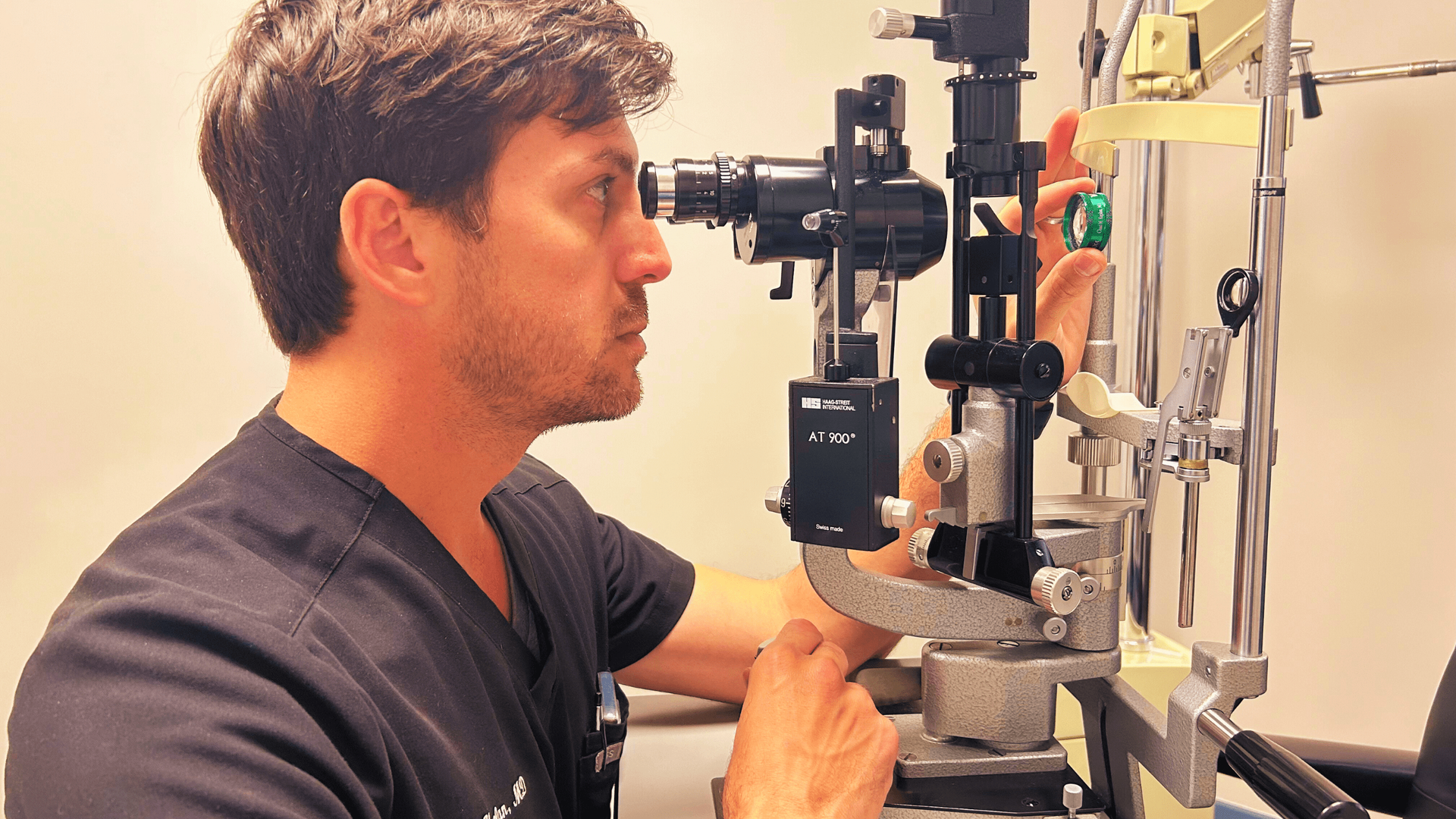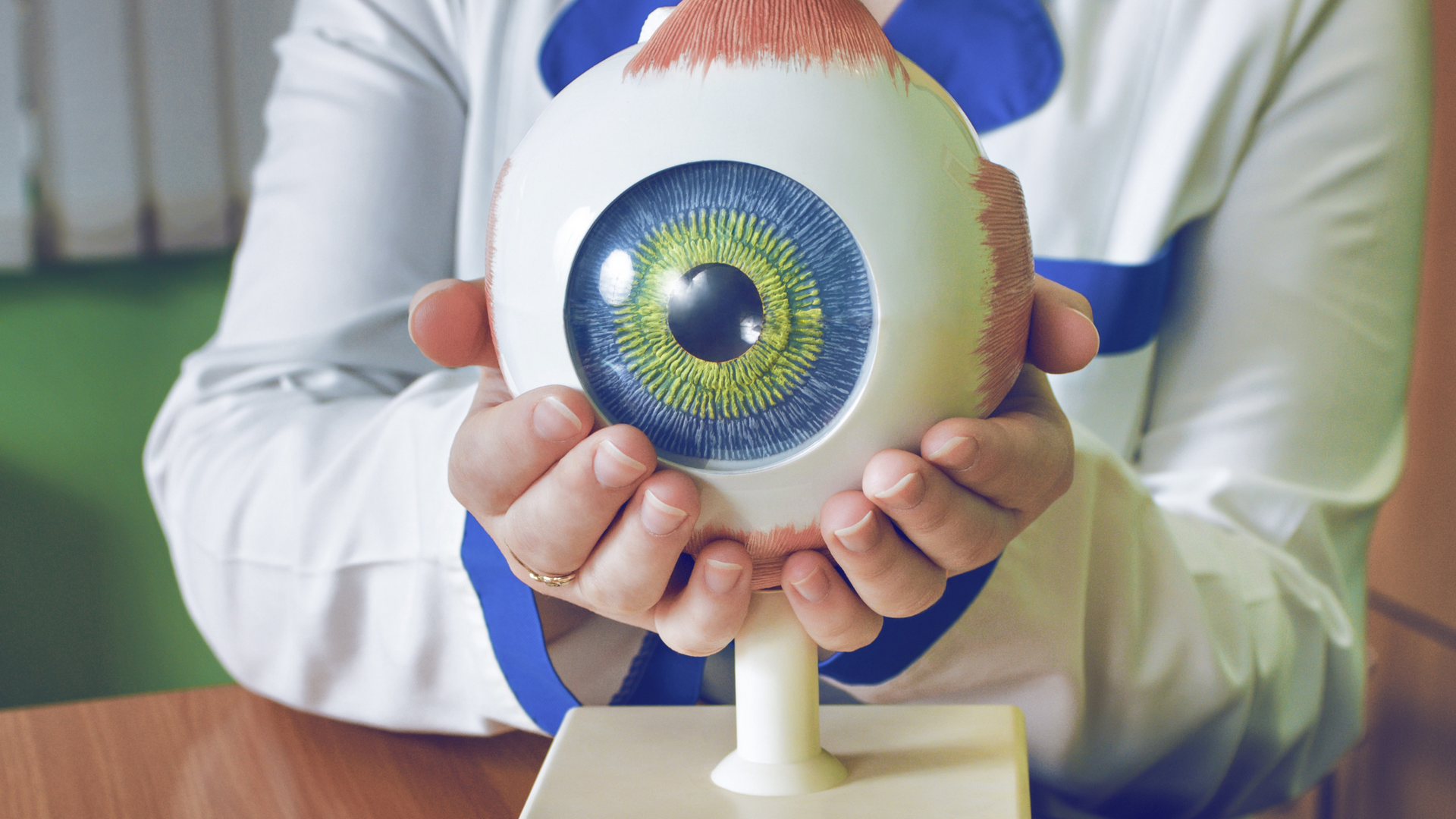Follow Us
10 Street Name, City Name
Country, Zip Code
786-829-6395
contact@ophthalmologistmiami.com
Top 45 Questions To Ask An Ophthalmologist
When to Consider Cataract Surgery?
Cataract surgery becomes an option when impaired vision affects your daily life, hindering activities even with corrective eyewear. If tasks like reading, driving, or recognizing faces become challenging, it's time to consider the procedure.
What to Expect Before Cataract Surgery?
Before surgery, you'll undergo a series of evaluations, including eye exams and measurements. Your surgeon will discuss the procedure, explain various lens options, and address any concerns you might have. This pre-operative phase ensures both you and your surgeon are well-prepared for the surgery.
During and After?
During the surgery, your surgeon will replace the cloudy natural lens with a clear artificial lens. The procedure is typically performed on an outpatient basis, and you'll receive post-operative instructions for eye care and recovery. Most patients can return home the same day.
Cataract Surgery Cut Complication Risks?
While cataract surgery is generally safe and successful, there are potential risks. These include infection, bleeding, retinal detachment, and minor changes in vision. These complications are relatively rare and can often be managed effectively.
How Will Cataract Surgery Help My Vision?
Cataract surgery involves removing the clouded lens and replacing it with an artificial intraocular lens (IOL). This improves vision clarity by allowing light to pass through the eye unimpeded. Patients often notice reduced glare and improved color perception, enhancing their overall quality of vision.
If I Have Cataracts in Both Eyes, Can I Have Surgery on Both Eyes at the Same Time?
Typically, cataract surgery is performed one eye at a time to ensure that one eye has clear vision during the recovery period of the other eye. This approach helps maintain a functional level of vision throughout the process.
How Long After Surgery Before I Notice My Vision Is Better?
While vision often improves shortly after surgery, it can take several weeks for your eyes to fully adjust and stabilize. You might experience gradual improvements in clarity and reduced dependence on glasses as your eyes heal and adapt to the new lens.
Will I Still Need Glasses After Surgery?
While cataract surgery can significantly reduce your dependence on glasses for distance vision, you may still need them for reading or other close-up tasks. However, premium multifocal or accommodating IOLs can provide improved near and distance vision, reducing the need for glasses in many situations.
Can I Still Have Cataract Surgery If I’ve Had Lasik Surgery?
Yes, cataract surgery is possible after LASIK. However, previous LASIK can impact measurements and calculations for the new lens. Your surgeon will evaluate your specific case and choose the best approach to optimize your visual outcomes.
How Do I Get Ready for Cataract Surgery?
Preparing for cataract surgery involves following pre-operative instructions provided by your surgeon. This may include details about fasting before surgery, adjusting medications, and arriving at the surgical center at the designated time. Be sure to address any questions or concerns with your medical team.
When Do I Need to Stop Eating and Drinking Before Surgery?
Your surgeon will provide specific fasting instructions, which often begin at midnight the night before the surgery. Following these instructions ensures a safe and smooth procedure.
When Do I Need to Stop Eating and Drinking Before Cataract Surgery?
Having a pre-operative physical checkup with your primary care provider is advisable. It helps ensure that you are in good overall health and can safely undergo the surgical procedure.
Do I Need to Stop Taking or Change Any of My Medicines?
Certain medications, especially blood thinners, may need to be adjusted before surgery to minimize bleeding risks. Consult your surgeon and primary care provider about your medications to determine if any modifications are necessary.
What if I Also Have Other Eye Problems Like Glaucoma or Macular Degeneration?
If you have other eye conditions like glaucoma or macular degeneration, your surgeon will take these into consideration when planning your cataract surgery. Collaborative management may be needed to ensure the best possible outcomes.
What Else Do I Need to Bring With Me on the Day of Cataract Surgery?
On the day of surgery, bring identification, insurance information, and any necessary paperwork provided by the surgical center. Wearing comfortable clothing and avoiding makeup or jewelry around the eyes is also recommended.
What Happens During Cataract Surgery?
Cataract surgery involves making a small incision in the eye, breaking up the clouded lens using ultrasound, and removing the pieces. An artificial lens (IOL) is then inserted to replace the natural lens, restoring clear vision.
How Long Will the Cataract Surgery Take?
The actual surgery typically takes around 15 to 20 minutes per eye. However, the entire process, including preparation and recovery, may require a few hours.
What Type of Anesthesia Will I Have? Will I Feel Any Pain During the Surgery?
Local anesthesia is commonly used, numbing the eye and surrounding area. You might feel a slight pressure sensation, but pain during the surgery is minimal.
How Do the Doctors Make Sure I Won’t Move During Cataract Surgery?
You'll be asked to focus on a specific point, and the surgeon may use gentle tools or techniques to minimize involuntary eye movement.
Is the Cataract Removed With a Laser?
Cataracts are typically removed using a technique called phacoemulsification, which involves using ultrasound to break up the cloudy lens before removal. While lasers are used in some cases, ultrasound is the more common method.
Will I Need a Lens Implant?
Yes, a clear artificial lens (IOL) is implanted during cataract surgery. This IOL replaces the clouded natural lens and helps restore clear vision.
Are There Different Types of Lens Implants?
Yes, there are various types of IOLs available, including monofocal, multifocal, and toric lenses. These lenses offer different benefits, such as improved distance and near vision or astigmatism correction.
What Are the Risks?
While cataract surgery is generally safe, potential risks include infection, bleeding, retinal detachment, and changes in intraocular pressure. Serious complications are rare but should be discussed with your surgeon.
What Happens After?
After surgery, you'll rest briefly, receive post-operative instructions, and attend follow-up appointments to monitor your healing progress. Most patients can return home on the same day as the surgery.
Will I Have to Spend the Night in the Hospital? How Long Will I Need to Spend at the Surgical Center?
Cataract surgery is typically performed on an outpatient basis, and most patients can return home on the same day. You may spend a few hours at the surgical center for observation and recovery.
Will I Have to Wear an Eye Patch?
Eye patches are not typically necessary after cataract surgery. Your eye surgeon will provide guidance on whether you need any eye protection.
Will I Need to Take Eye Drops?
Yes, you'll likely be prescribed a regimen of eye drops to prevent infection and reduce inflammation. Following the prescribed schedule is important for optimal healing.
Can I Shower or Bathe at Home After Cataract Surgery?
You can usually shower the day after surgery, but it's important to avoid getting water directly in your eye. Be gentle and cautious when washing your face.
What Activities Can I Do While I Recover? When Will I Be Able to Drive? When Can I Be Sexually Active?
During recovery, avoid strenuous activities that might strain your eyes, such as heavy lifting or bending. Your surgeon will provide specific guidelines for activities, including driving and resuming sexual activity, based on your individual healing progress.
Do I Need to See the Doctor for a Follow-up Visit? If So, When?
Yes, follow-up visits are crucial for monitoring your healing and addressing any concerns. Your surgeon will provide a schedule of post-operative appointments to ensure proper recovery.
When Should I Have My Cataract Operated On?
The timing of cataract surgery depends on how much the cataract affects your vision and daily activities. When the cataract significantly impairs your quality of life, it's time to consider the procedure.
Does My Cataract Need to Be Mature to Have It Removed?
Cataracts don't need to be fully mature for removal. Once they start interfering with your vision and daily life, you can discuss the procedure with your surgeon.
Is the Operation Painful?
Cataract surgery is usually not painful. Local anesthesia numbs the eye, and you might feel minimal discomfort or pressure during the procedure.
How Long After Cataract Surgery Do I Have to Wait Before Driving?
You can typically resume driving once your vision meets legal requirements and your surgeon gives you clearance. This might take a few days to a week, depending on your healing progress.
When Can I Resume My Regular Chores, Like Cooking or Gardening?
You can gradually resume light activities like cooking or gardening within a few days of surgery. However, avoid activities that might expose your eyes to potential risks or strain during the early stages of recovery.
When Can I Go Swimming or Resume Going to the Gym?
Wait until your surgeon clears you for swimming and gym activities. This is usually a few weeks after surgery to ensure proper healing and minimize the risk of complications.
When Will I See the Results of the Cataract Surgery?
You'll start noticing improvements in your vision within a few days after surgery. However, it can take several weeks for your vision to stabilize and reach its full potential.
My Friend Had Her Cataract Removed and She Does Not Wear Glasses Anymore. How Is That Possible?
Premium intraocular lens (IOL) options, like multifocal or extended depth of focus (EDOF) lenses, can provide enhanced vision at various distances. These lenses reduce the need for glasses by addressing both near and distance vision, offering increased independence from corrective eyewear.
I Have Astigmatism – Can This Be Cured?
Astigmatism can be corrected during cataract surgery with the use of toric intraocular lenses. These specialized lenses can effectively address astigmatism and improve overall visual quality.
I Have Had Herpes in My Eye. Can I Still Have My Cataract Removed?
If you have a history of ocular herpes, it's important to discuss this with your surgeon. They will assess your situation and take appropriate precautions to ensure a safe surgery, considering your medical history.
I Have Glaucoma – Is It Safe to Have My Cataracts Removed?
Cataract surgery is often safe for patients with glaucoma. In fact, it can sometimes help manage intraocular pressure. Your surgeon will coordinate with your glaucoma specialist to ensure the best approach for your individual case.
I Have Keratoconus – Can I Have My Cataracts Removed Safely?
If you have keratoconus, your surgeon will carefully evaluate your eye's condition before proceeding with cataract surgery. The presence of keratoconus may impact the surgical approach and lens selection.
Do Cataracts Ever Come Back After Having Them Removed?
Cataracts do not return once they are surgically removed. However, some patients may develop a secondary condition called posterior capsular opacification (PCO), which can cause similar symptoms. PCO is treatable with a simple laser procedure.
I Have Had a Corneal Transplant in the Past. Is It Safe for Me to Have Cataract Surgery?
Having a history of corneal transplant does not necessarily exclude you from cataract surgery. However, your surgeon will need to carefully assess your eye's health and previous surgical history to determine the best approach and minimize potential risks.
Will I Have Stitches in My Eye Following the Operation?
Stitches are not commonly used in modern cataract surgery techniques. The small incision made for the surgery typically does not require stitches, as it self-seals and heals naturally.
If you're interested in learning more about our Ophthalmology Miami, please feel free to read more on our Cataracts or Glaucoma services. Also, see what our patient reviews and other blog posts about cataracts and glaucoma.


Call the Ophthalmologist Miami team to discuss how we can help you with your glaucoma and cataract treatment!
Ophthalmologist Miami is a Miami eye doctor that has treated eye diseases and performed Glaucoma surgeries, Cataract Surgeries for hundreds of patients in the Miami, Fort Lauderdale, and South Florida metropolitan area.
Made with ♥ in Miami, FL




